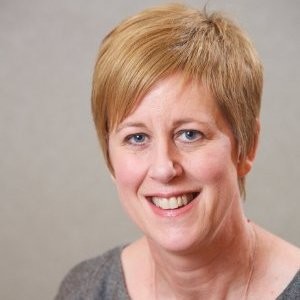
What difference did we make? I’d argue this is the single biggest challenge for PR today, as we fight to win marketing budget against a growing army of competitors, many of whom are now parking their tanks on our lawn.
Ten years ago, discussions about measuring and evaluating communications were perhaps seen as niche and a bit geeky – but in 2019 these discussions are fundamental for our very survival.
Getting measurement right can even affect your salary, according to PRCA Director General Francis Ingham. “Until we can prove the value that we bring, we will not be able to charge the price that we should, and so to pay people the amount that they deserve.” (PRCA PR & Communications Census 2019).
One in four in PR don’t measure
And how is the PR industry measuring up to this challenge? Not brilliantly, it would seem. While there has been some improvement, the 2019 PRCA Census shows that 26% of respondents did not use any evaluation methods at all.
So far so gloomy. But the good news is that there is plenty of help and advice out there, and a great place to start is AMEC (if you haven’t heard of it before, the Association for the Measurement and Evaluation of Communication – an international body promoting best practice).
I was lucky enough to attend last week’s 2019 AMEC Summit in Prague, where speakers from around the world shared stories, tips and lessons for how to up your measurement game. Here are my five key out-takes:
1. Follow the money. This is the biggest lesson of all, and if you (or your leadership team) haven’t got this yet you should be worried. Getting measurement right isn’t an intellectual exercise or a nice to have, it’s essential because it will make you money. How can you expect a client to invest money in a service that they can’t prove the value of? And if you can’t be bothered, others will.
2. Look forward not back. Too often we view measurement as simply an exercise in counting outputs, in measuring what happened in the past (opportunities to see, page views, link clicks). While of course we need to measure what we delivered, the real business value of measurement is in the insight it gives into future planning to shape better performance. That leads me nicely into out-take three…
3. Try, fail, try again.Not fearing failure was a big theme of the conference. Speaker after speaker, many of them from huge organisations with big budgets, spoke about how they actively encouraged their teams to fail (fast) in order to improve. Measuring communications is tough, it won’t always go right, but if something doesn’t work don’t be afraid to say so – as long as you have a plan of what to do next, your client or line manager will respect you for it.
4. Aim high. One of the most inspiring slides presented at the conference was from keynote speaker Allyson Hugely, VP Analytics & Market Research, Global Communications at US-based Prudential Financial. It showed her mission – to move communications intelligence up the decision curve. That means moving away from monitoring mentions to being able to help your organisation understand where is the risk and where is the opportunity? It’s about talking the language of business and presenting concise and relevant information only to the time-pressed C-suite.
5. Just do it. If there is one thing I’d urge you to do as a result of reading this article, it’s to take action. If you’re already working in an organisation that does good measurement, great! Embrace it, learn and actively seek training opportunities. Believe me, measurement is the future. If you’re (more likely) not in this position and wondering where to start, don’t worry. There are lots of resources out there to help – including the AMEC integrated measurement framework, which helps you to start thinking about how to measure the impact of your work. It’s a free, easy-to-use interactive tool that I think should be the starting point of planning any PR or comms campaign.
Libby Howard is the founder and CEO of Intelligent Conversation, a leading independent agency based in Manchester that delivers award-winning work across the globe. The agency is a member of AMEC and Libby is part of AMEC’s agency group, which aims to share best practice within the PR agency community. www.weareic.com
